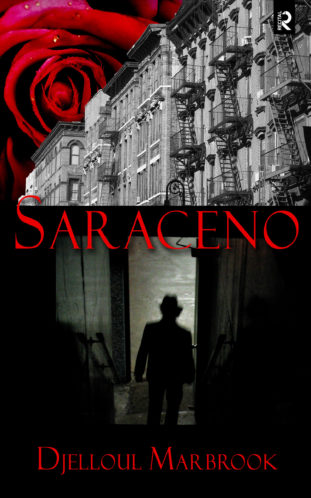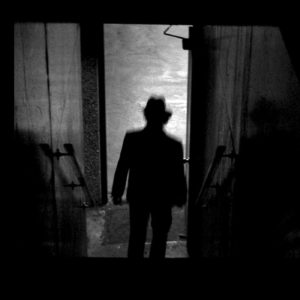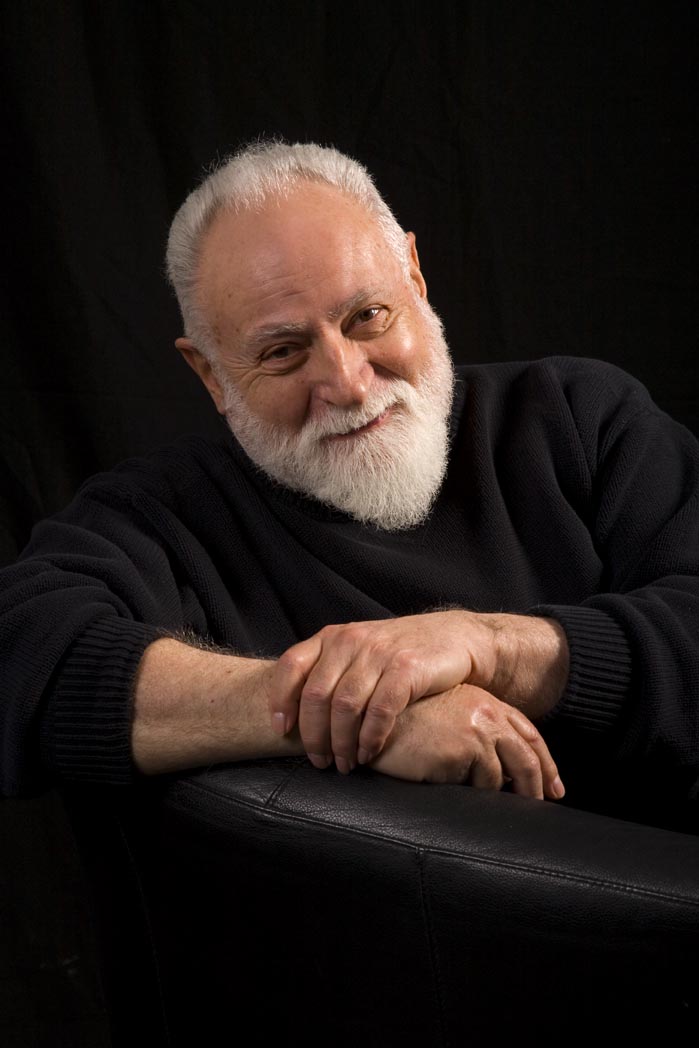SARACENO
Djelloul Marbrook
SARACENO
Djelloul Marbrook

SARACENO
A novella
Billy Salviati just wants to be a good soldier, to follow orders and live under the radar. It's all going well until he meets Hettie Warshaw one night on a dark street in Hell's Kitchen. Then his life unravels. Saraceno is the story of a hit man whose good looks are equalled only by his gift for friendship. He survives the vicissitudes of good looks, but his gift for friendship puts him in the crosshairs of friends and enemies.
Not many writers about the Mafia listened to the notorious Frank Costello, Vito Genovese, and Joey Adonis drinking marsala and chatting in a kitchen, but Djelloul Marbrook did and celebrates it with a poet’s ear in this haunting tale of redemption.
Billy Salviati just wants to be a good soldier, to follow orders and live under the radar. It's all going well until he meets Hettie Warshaw one night on a dark street in Hell's Kitchen. Then his life unravels. Saraceno is the story of a hit man whose good looks are equalled only by his gift for friendship. He survives the vicissitudes of good looks, but his gift for friendship puts him in the crosshairs of friends and enemies.
Not many writers about the Mafia listened to the notorious Frank Costello, Vito Genovese, and Joey Adonis drinking marsala and chatting in a kitchen, but Djelloul Marbrook did and celebrates it with a poet’s ear in this haunting tale of redemption.
Reviews
Saraceno is an electric tone poem straight from a world we only think we know. An heir to George V. Higgins, Marbrook writes dialogue that not only entertains with an intoxicating clickety-clack, but also packs a truth about low-life mob culture The Sopranos only hints at.
—Dan Baum, author of Gun Guys: A Road Trip, Nine Lives: Mystery, Magic, Death & Life in New Orleans, and Smoke & Mirrors: The War on Drugs & the Politics of Failure.
... a good ear for crackling dialogue ... I love Marbrook's crude, raw music of the streets. The notes are authentic and on target …
—Sam Coale, The Providence (RI) Journal
Strongly recommended as a remarkably crafted tale.
—Midwest Book Review
This lyrical and violent, funny and sad, hot and cool novella haunts us. Try it.
—Ann LaFarge, Taconic Weekend
Saraceno is an electric tone poem straight from a world we only think we know. An heir to George V. Higgins, Marbrook writes dialogue that not only entertains with an intoxicating clickety-clack, but also packs a truth about low-life mob culture The Sopranos only hints at.
—Dan Baum, author of Gun Guys: A Road Trip, Nine Lives: Mystery, Magic, Death & Life in New Orleans, and Smoke & Mirrors: The War on Drugs & the Politics of Failure.
... a good ear for crackling dialogue ... I love Marbrook's crude, raw music of the streets. The notes are authentic and on target …
—Sam Coale, The Providence (RI) Journal
Strongly recommended as a remarkably crafted tale.
—Midwest Book Review
This lyrical and violent, funny and sad, hot and cool novella haunts us. Try it.
—Ann LaFarge, Taconic Weekend
Hear excerpts and discussions on The Strange Recital podcast
Excerpt from Saraceno

About the author
Djelloul Marbrook was born in 1934 in Algiers, Algeria, the son of an Algerian father and American mother. He grew up in Brooklyn, West Islip, and Manhattan, later working as a journalist for the Providence (RI) Journal, the Elmira (NY) Star-Gazette, the Baltimore Sun, the Winston-Salem Journal, the Washington Star, and daily newspapers in northeast Ohio and northern New Jersey. He is the author of eleven books of fiction and fourteen of poetry. His poetry and fiction have also been widely published in journals and anthologies. His writing has won the 2007 Stan & Tom Wick Poetry Prize for Far From Algiers (2008, Kent State University Press), the 2008 Literal Latté fiction award for “Artist’s Hill ”—an excerpt from Crowds of One (2018, Leaky Boot Press), volume two of the Light Piercing Water trilogy, and the 2010 International Book Award in poetry. Djelloul maintains a popular and vibrant presence on Facebook, Twitter and Flickr. Now retired, but still very active as a writer, poet and photographer, he lives in the mid-Hudson Valley with his wife Marilyn, from where he also looks after the estates of his mother and aunt—both of whom were noted artists.


Djelloul Marbrook was born in 1934 in Algiers, Algeria, the son of an Algerian father and American mother. He grew up in Brooklyn, West Islip, and Manhattan, later working as a journalist for the Providence (RI) Journal, the Elmira (NY) Star-Gazette, the Baltimore Sun, the Winston-Salem Journal, the Washington Star, and daily newspapers in northeast Ohio and northern New Jersey. He is the author of eleven books of fiction and fourteen of poetry. His poetry and fiction have also been widely published in journals and anthologies. His writing has won the 2007 Stan & Tom Wick Poetry Prize for Far From Algiers (2008, Kent State University Press), the 2008 Literal Latté fiction award for “Artist’s Hill ”—an excerpt from Crowds of One (2018, Leaky Boot Press), volume two of the Light Piercing Water trilogy, and the 2010 International Book Award in poetry. Djelloul maintains a popular and vibrant presence on Facebook, Twitter and Flickr. Now retired, but still very active as a writer, poet and photographer, he lives in the mid-Hudson Valley with his wife Marilyn, from where he also looks after the estates of his mother and aunt—both of whom were noted artists.
The Author's Choice
We ask authors to recommend a book.
The Long Public Life of a Short Private Poem
by Peter Murphy
Published by Stanford University Press, 2019
"This is a breathtakingly unique book about poetry, publishing and the evolution of our language. It explores the publishing history of Thomas Wyatt’s poem, They Flee From Me, from its distribution among no more than a hundred literate courtiers in Henry VIII’s court to its well-known fame today. But its ultimate contribution to our understanding is its insistence that enigma is crucial to a poem’s quality. Wyatt never published the poem, and yet it comes down to us, revised but not broken by its editors and publishers."

